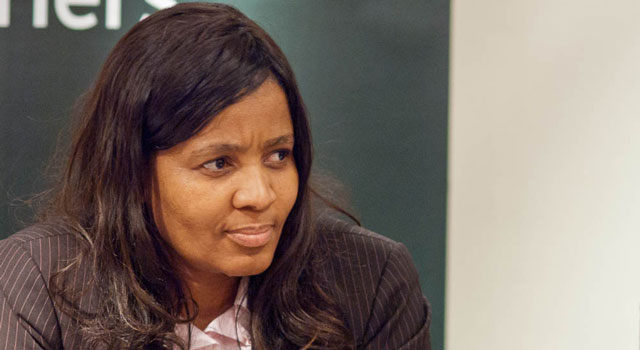
State-controlled Broadband Infraco is set to replace its Siemens-built legacy infrastructure over the next five years and has just closed the tender process for the project. The fibre operator and wholesaler says a decision on the winning bidder for the multibillion-rand project should be decided within the next 60 days.
Recently appointed CEO Puleng Sejanamane, who took the helm last month, says the company cannot reveal the extent of the project or the value of the tender because only once a full assessment is done of the existing network will the costs of the upgrade become clear. However, TechCentral understands it will probably run into billions of rand.
The first phase of the tender process closed this week. It was meant to close sooner but was extended to allow bidders more time to provide information about their suitability to provide the necessary infrastructure and services.
Sejanamane says the upgrade will have to be done in a “phased approach”, starting with 20% of the network. “We won’t replace everything at once; it’s not feasible,” she says. She expects the entire upgrade process to take about five years.
Broadband Infraco now has to go through the necessary Public Finance Management Act processes and approvals and seek permission from shareholders. That process will take about two months.
Sejanamane told TechCentral about the investment plan at the launch of the West African Cable System (Wacs) in Cape Town on Friday. She says Broadband Infraco’s involvement in Wacs is part of its short- rather than its long-term strategy. “Wacs was necessary for SA’s Square Kilometre Array (SKA) bid.”
She says 70% of the company’s capacity on Wacs is “earmarked for projects of national interest” with only a small percentage intended for the retail market.
Asked what will happen to the capacity allocated to the SKA project should SA lose it’s bid to host the array of radio telescopes to rival bid nation Australia, Broadband Infraco’s executive manager for special projects, Vishen Maharaj, says it would be reallocated.
“There is a great deal of capacity required for other projects,” he says. “We would put any excess capacity into the market.”
He says SA will need increasing capacity in years to come and that there are three components to connectivity. “There’s an international component, a national component and local access networks.”
He says Broadband Infraco is involved in the international and national components, but doesn’t yet have an access component strategy in place. “As a wholesaler with a [network] licence we are hoping for market dynamics to take care of access networks. But that doesn’t mean we aren’t also considering a scheme to fast-track access.”
Broadband Infraco currently has capacity to provide backhaul to Johannesburg from Cape Town and is supplying this service to cellular operator Vodacom. MTN is trialling it. Maharaj says Infraco also intends to provide backhaul access for landlocked sub-Saharan African countries and is developing links to Botswana. — (c) 2012 NewsCentral Media




